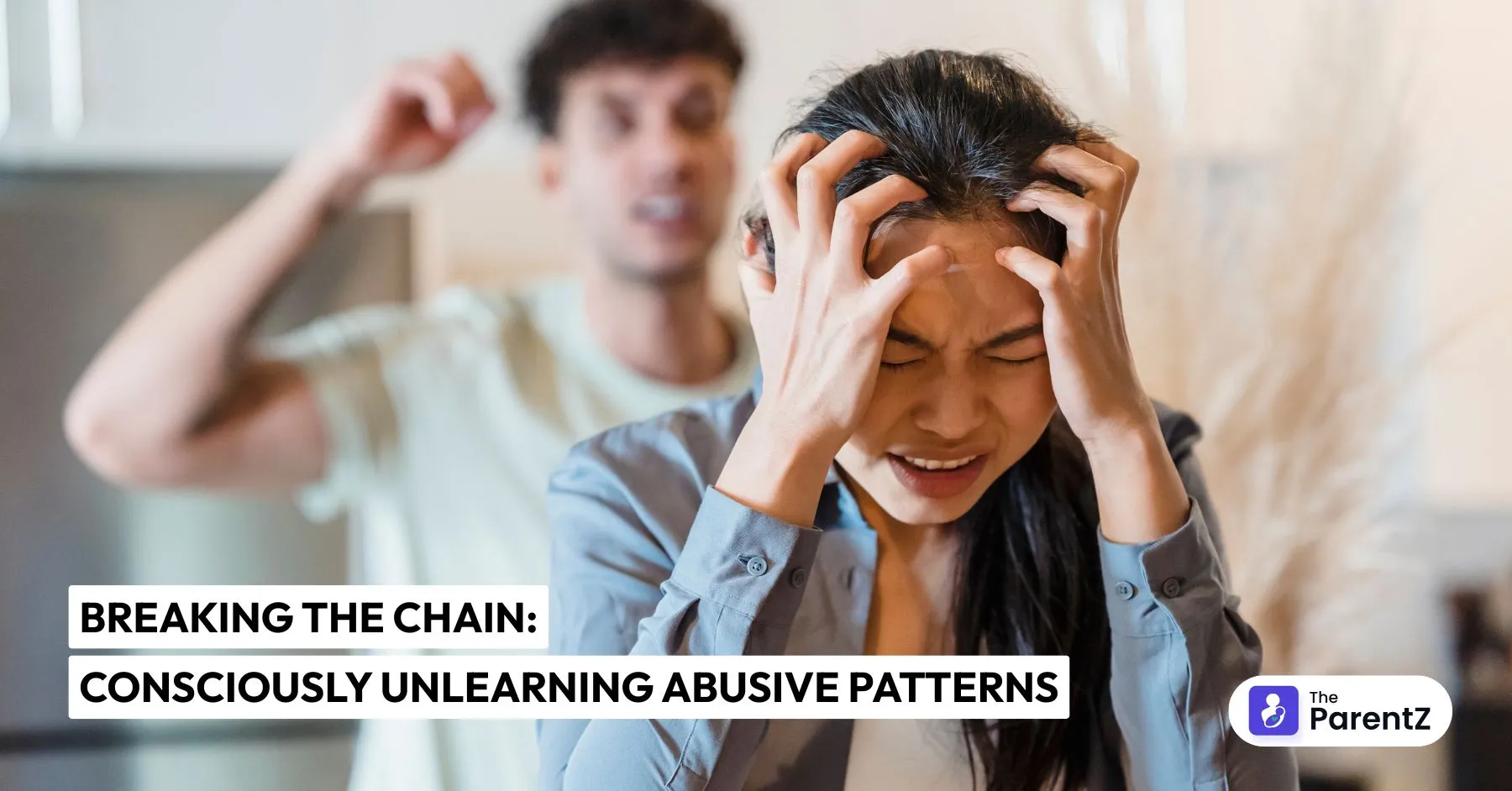If you’re reading this, chances are you’ve been through some tough times. Growing up with parents who hurt you—whether through words, actions, or neglect—can feel like carrying a heavy backpack filled with stones. Each stone represents a painful memory, a harsh word, or a moment of fear. It’s exhausting, isn’t it? But here’s the thing: you don’t have to carry that weight forever. You can learn to let go of those stones and break free from the chains that bind you.
Understanding Your Feelings
First, let’s talk about what you might be feeling. It’s completely normal to experience a whirlwind of emotions when dealing with an abusive parent. One moment, you might feel angry—really angry—about what they did or said. You might think, “I hate my mom (or dad) for treating me this way!” But then, just as quickly, you might feel guilty or sad and think, “But they’re trying their best.” This push and pull can leave you feeling confused and alone.
You’re not alone in this struggle. Many kids who grow up in similar situations feel the same way. It’s okay to have mixed feelings about your parents; it doesn’t make you a bad person. It just shows how complicated love can be when it’s mixed with pain.
The Survival Patterns We Develop
As we navigate these confusing feelings, we often develop survival patterns to cope with the chaos around us. You might find yourself:
Emotional Suppression
You might have learned early on that showing your feelings could lead to more hurt. So, you bury your emotions deep inside, thinking that if you don’t express them, maybe you won’t have to deal with the pain.
Why is it Abusive?
When you suppress your emotions, you’re essentially telling yourself that your feelings don’t matter. This can lead to a buildup of unresolved pain and resentment, which can manifest as anxiety or depression. You deserve to feel and express your emotions without fear of judgment or punishment. By denying your feelings, you’re creating an internal environment that is hostile to your well-being.
People-Pleasing
You may find yourself going out of your way to make others happy, hoping it will keep the peace at home. You might think that if you can just keep everyone satisfied, you’ll avoid conflict and feel safer.
Why is it Abusive?
While wanting to make others happy is a natural desire, constantly prioritizing others over yourself can be incredibly damaging. It teaches you that your worth is tied to how well you can please others, leading to a loss of self-identity. This pattern can leave you feeling empty and unfulfilled as if you’re living someone else’s life instead of your own. You deserve to be valued for who you are, not just for what you do for others.
Aggression or Withdrawal
Sometimes, the pain can turn into anger, and you might lash out at friends or family. Other times, it feels easier to just pull away from everyone and hide.
Why is it Abusive?
Responding with aggression or withdrawing from social interactions can create barriers in your relationships. If you lash out at others, it can lead to isolation and loneliness, pushing away the very people who might offer support and understanding. On the flip side, withdrawing means missing out on meaningful connections that could help you heal. Both responses are forms of self-abuse because they prevent you from forming healthy relationships and experiencing joy.
Self-Destructive Behaviors
You might engage in behaviors that harm you—like skipping meals, using substances, or putting yourself in risky situations.
Why is it Abusive?
Engaging in self-destructive behaviors is one of the most harmful tactics you might adopt. These actions signal a deep-seated belief that you don’t deserve care or happiness. By harming yourself—whether physically or emotionally—you reinforce the negative messages instilled by your abusive environment. You’re essentially punishing yourself for something that wasn’t your fault. Remember, you are worthy of love and affection, including from yourself.
Hypervigilance
Living in an unpredictable environment can make you constantly on edge, always watching for signs of trouble.
Why is it Abusive?
Living in a constant state of hypervigilance is exhausting and takes a toll on your mental health. It creates a world where you’re always on edge, unable to relax or enjoy life’s simple pleasures. This ongoing stress can lead to burnout and chronic anxiety, making it difficult to focus on anything other than potential threats. It’s abusive because it robs you of peace and joy—two essential components of a healthy life.
Gaslighting and Self-Doubt
If your parents have manipulated your perception of reality—making you question your own feelings or memories—you may struggle with self-doubt. You might think, “Am I too sensitive?” or “Did that really happen?”
Why is it Abusive?
When someone manipulates your perception of reality, it creates confusion and self-doubt that can linger for years. You may find yourself questioning your memories or feelings, leading to a fractured sense of self. This internal conflict is abusive because it undermines your confidence and makes it difficult for you to trust yourself. You deserve clarity and the ability to stand firm in your truth.
Withholding Affection
You may have experienced love as something conditional—given only when you met certain expectations and taken away when you didn’t.
Why is it Abusive?
Experiencing love as conditional creates an unhealthy dynamic where affection feels like a reward rather than a basic human right. This leads to feelings of unworthiness and insecurity that can persist into adulthood. When love is used as leverage, it becomes an abusive tactic that teaches you that you must earn affection rather than simply receiving it as part of being human. You deserve unconditional love—love that doesn’t depend on meeting someone else’s expectations.
Why Letting Go is Important
Letting go of these patterns may seem scary at first. After all, they’ve been your companions for so long. But holding onto them can lead to more pain:
- Emotional Turmoil: Continuing to suppress your feelings can lead to anxiety and sadness that stick around longer than they should.
- Struggles in Relationships: If you always try to please others or keep your emotions hidden, it can be hard to form genuine connections with friends or loved ones.
- Repetition of Patterns: Without realizing it, you might repeat these behaviors in your own relationships someday—continuing the cycle of hurt.
But imagine a life where you don’t have to carry those stones anymore! A life where you can express yourself freely and build healthy relationships based on trust and love.
How to Start Unlearning
- Acknowledge Your Pain: The first step is recognizing that what happened wasn’t okay. It’s okay to feel hurt and angry about it. Give yourself permission to feel those emotions without judgment.
- Talk About It: Find someone who understands—be it a friend, teacher, or counselor—and share your story. Talking about your experiences can help lighten the load and validate your feelings.
- Practice Self-Compassion: Be kind to yourself. Understand that these survival tactics were born out of necessity but are no longer needed as you grow stronger.
- Explore Healthy Outlets: Try journaling your thoughts and feelings or expressing yourself through art or music. These activities can help release pent-up emotions and allow for healing.
- Learn New Coping Strategies: Instead of hiding away when things get tough, practice deep breathing or mindfulness techniques to help ground yourself in the moment.
- Build Your Support Network: Surround yourself with people who lift you up and support your journey toward healing. This could be friends who understand what you're going through or mentors who encourage your growth.
- Celebrate Small Wins: Every step forward is worth celebrating! Whether it’s expressing a feeling instead of hiding it or saying no when something doesn’t feel right—acknowledge those victories!
Conclusion
As you begin this journey of unlearning abusive patterns, remember that change takes time—and that’s perfectly okay! Each day is an opportunity for growth and healing. Imagine waking up one day feeling lighter, freer from the burdens of the past, and ready to embrace life with open arms!
You have the power within you to break the chain of abuse and create a brighter future for yourself—a future filled with love, joy, and acceptance. It won’t always be easy; there will be challenges along the way—but every step forward is a testament to your strength and resilience.
So, take a deep breath and remember: You are worthy of happiness and peace. You deserve a life where love outweighs pain—a life where your voice is heard and valued. Let go of those stones; it’s time to soar!








Be the first one to comment on this story.